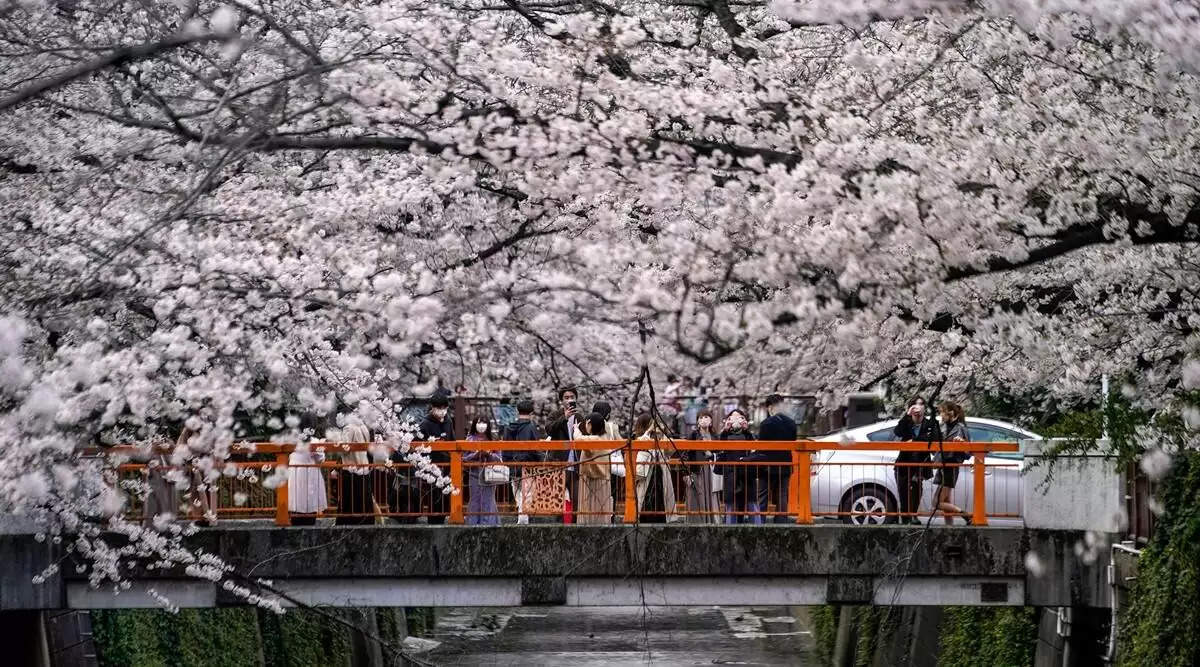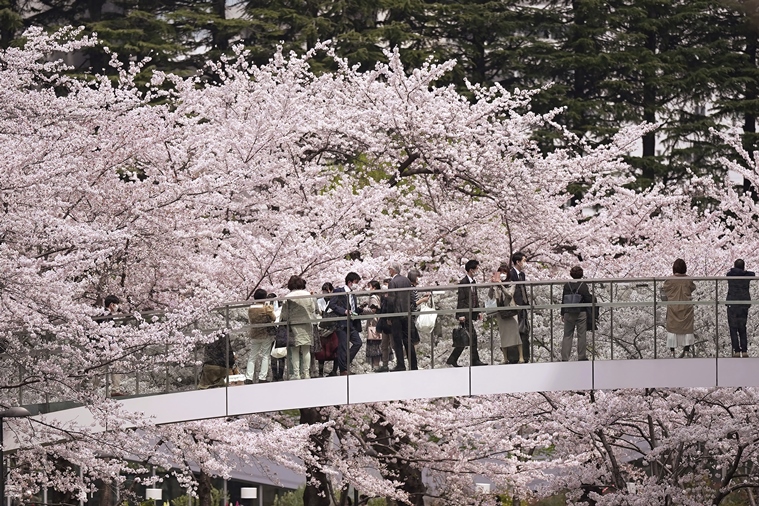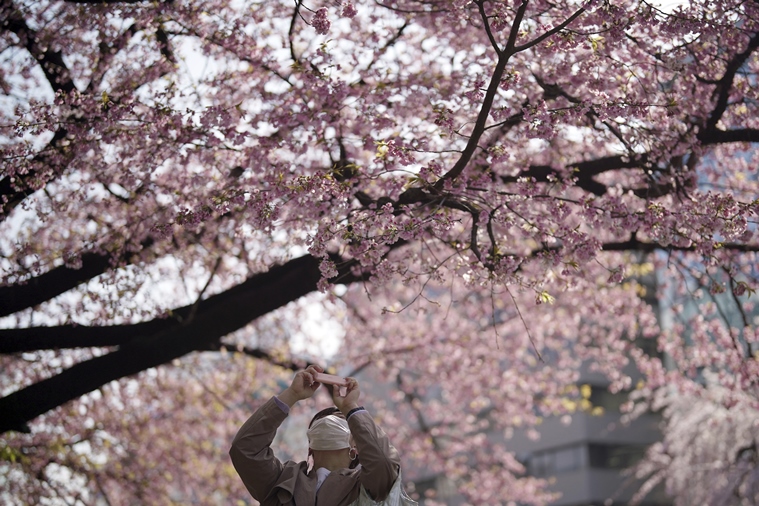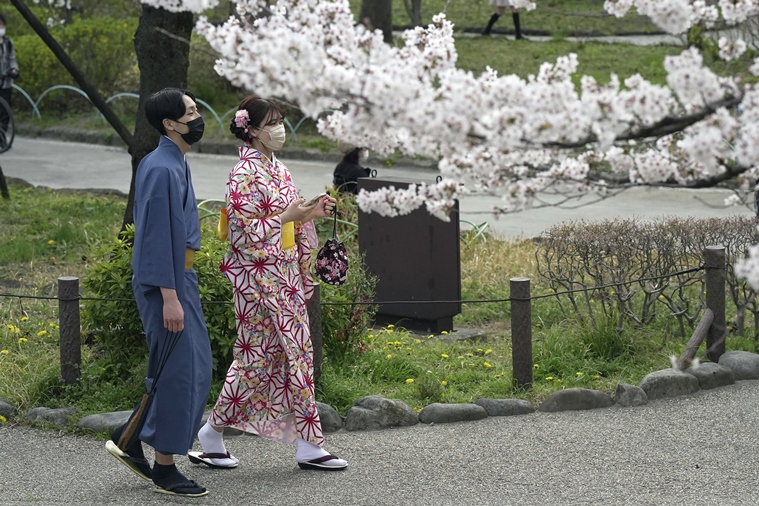Despite concerns about Covid-19, Japan enjoys cherry blossom season.

One week after COVID-19 restrictions were lifted, people across Japan are celebrating the peak cherry blossom viewing season, raising fears of a virus recurrence.
In many parts of Japan, trees are in full bloom this week. According to the Japan Meteorological Agency, the peak occurred on Sunday, bringing many individuals who had postponed participation in the national ritual for two years due to the pandemic.
Thousands of people saw the fluffy pale pink petals while strolling under rows of trees or from rowboats on the palace moat at Chidorigafuchi Park, a popular "hanami" or cherry blossom watching area northwest of the Imperial Palace.
"It appears that life has returned to normal." People in the downtown area have been waiting for this for a long time," Takanori Shiwaku, a 62-year-old café owner, remarked as he gazed at the park's blossoms.

Cherry blossoms, he explained, symbolize purity because they bloom and then fall in a multitude.
Midori Hayashi, a 75-year-old retiree who has primarily stayed at home for the past two years, said, "I wanted to come here for sure this year, and I'm really glad."

Japan's favorite flower, cherry blossoms, or "sakura," bloom from late March to early April, just as the country celebrates the start of a new school and work year.
As part of ongoing anti-virus measures, spectators were asked not to assemble under the trees for drinking parties — a traditional way of celebrating the season — at numerous parks this year.

In a comeback attributable to the new omicron subvariant, Tokyo reported 7,846 new cases on Tuesday, more than double the 3,533 reported a week earlier. On Monday, Japan recorded 29,740 new cases nationwide, up slightly from the previous week, bringing the total number of infections to nearly 6.4 million, with about 28,000 deaths.
The surge was attributed to "the spread of the BA.2 subvariant of omicron, which is rapidly replacing the previous variant," according to Tokyo Governor Yuriko Koike.
.png)